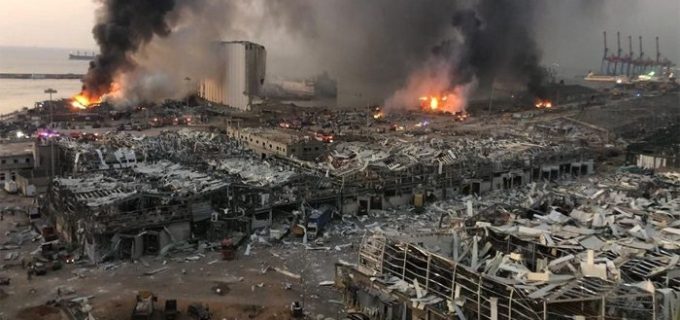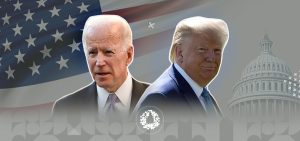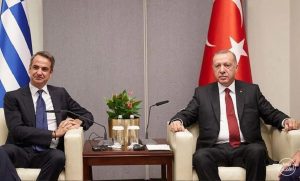Beirut witnessed an explosion the size of which is unprecedented in Lebanon’s modern history. This occurred when 2,750 tons of ammonium nitrate, which had been stored in Beirut’s port since 2014, caused an explosion that extended to at least seven to eight kilometres, with a seismic energy equivalent to 4.5 degrees on the Richter scale, according to Jordanian earthquake monitoring stations that recorded the explosion at 18:08 on that fateful day.
The explosion left a trail of human and material losses as the death toll reached 137 people at the time of publication, with nearly 5,000 wounded, and 300,000 people displaced after their homes were destroyed by the explosion.
Furthermore, the explosion caused massive shockwaves both at local and international levels, accompanied by a number of speculations prompted by the spatial and temporal timing of the explosion. Since September 2019, Lebanon has been experiencing a wave of political tension as a result of administrative and economic corruption left by the quota system, which has reinforced the fragility of its internal situation and its border proximity to the Zionist entity.
Indeed, the explosion came as a surprise to internal and external parties alike, as the world, alongside Lebanon, was awaiting the issuance of judgment in the Special Tribunal for Lebanon that was scheduled for Friday 7 August – three days after the explosion. This was for the case of the assassination of former Prime Minister Rafik Hariri as a result of a car bombing that shook Beirut on February 14, 2005.
Here is an assessment of the situation, examining the repercussions the explosion will have on the economic, political and security aspects in Lebanon.
Context of the explosion
The explosion comes at a time when Lebanon is suffering from a number of economic, political and security challenges. Firstly, on the economic level, since last October, Lebanon has been experiencing popular tension due to the deterioration of living conditions, the rise in unemployment, the collapse of the Lebanese currency, and the extortionate rise in prices.
Moreover, as a result of the absence of a comprehensive economic reform plan, Lebanon failed to obtain a $10 million loan from the World Bank to get itself out of its stifling crisis. Over the coming phase, Lebanon will face further economic challenges as a result of the explosion that hit Beirut’s port.
Secondly, from a political perspective, Lebanon suffers from a state of chronic political fragility imposed by the quota system that followed the implementation of the Taif Agreement in 1989. This Agreement established the sharing of power on the basis of religious and sectarian affiliations, which led to Lebanon’s government depending on local influential powers or associated regional and international parties.
This situation led to the near absence of the institutional state, which was divided after the assassination of former Prime Minister, Rafik Hariri, on February 14, 2005, between the March 8 Alliance – led by Hezbollah and the Free Patriotic Movement – and the March 14 Alliance – led by The Future Movement, the Lebanese Forces Party and the Kataeb Party.
Therefore, despite government statements linking the explosion to poor storage and mismanagement in the port, speculations suggest the existence of external causes, rather than technical ones, to be behind this explosion. This is particularly so since the explosion came only three days before the issuance of the judgement, which was backed by the UN. The verdict was in the case against four Hezbollah operatives suspected to be behind the 2005 car bombing, two kilometres from the Beirut port, which led to the assassination of former Prime Minister Rafik Hariri and 21 people.
Thirdly, from a security perspective, this explosion came after Lebanon witnessed, last July, heightened tension between the Zionist entity and Hezbollah. A Hezbollah cell tried to target the Zionist entity in response to its targeting of Hezbollah leaders inside Syria. The two sides, however, did not delve into a direct confrontation in view of the critical security conditions that the region as a whole is experiencing during the current stage.
Faced with the reality imposed by the explosion at the Beirut port, Lebanon faces challenges that will have repercussions on both domestic and international levels.
Lebanon’s domestic repercussions
At a domestic level, Lebanon is facing economic, security and political repercussions that will have the greatest impact on the country’s stability, or lack of, during the next stage.
Implications for the economy
The current economic crisis in Lebanon is the worst the country has ever faced since the civil war that occurred between 1975 and 1990. Economic conditions deteriorated due to rife corruption, mismanagement, and the accumulation of public debts, which, at the end of last April, reached about $93 billion, or more than 170% of the GDP. Moreover, the Lebanese pound collapsed by more than 80% of its value against the US dollar in just a few months, which led to a more than a three-fold increase in the prices of consumer goods. This, in turn, led to a deterioration of living conditions, an increase in poverty and widespread unemployment. It is estimated that half of Lebanon’s population now lives below the poverty line, and about 35% of them are without work.
These economic deteriorations were exacerbated by the effect of the Coronavirus pandemic, as well as the severe damage caused by the explosion of Beirut’s port. The latter was inaugurated in 1894 and is the most important port in Lebanon, and one of the most important ports in the eastern basin of the Mediterranean. Due to the strategic location of Lebanon, the port was used to import basic materials from countries worldwide and export them through Lebanon to the countries of the Middle East. This port is, therefore, a basic pillar of the Lebanese economy because it plays such a fundamental role in the import and export process, and in moving the Lebanese economic wheel.
The average number of ships entering Beirut port is estimated at about 170 ships per month, unloading about 700,000 tons, and shipping about 70,000 tons of goods; while the average number of unloaded containers is estimated at about 23,000 containers per month. Beirut’s port deals with 300 international ports, and approximately 3,100 ships dock in it annually. The port consists of four docks with a depth of 24 metres, as well as a fifth dock that was under construction. It includes 16 berths and many warehouses and silos for storing wheat under the best storage conditions.
As a result of the port’s explosion, the Lebanese economy faces a loss estimated at $5 billion. This loss is as a result of the port stopping work, as well as the cost of damage to the port. The loss will also include import and export movement, which will affect the customs sector significantly. Additionally, the impact on the infrastructure is massive as the port was completely destroyed, as was adjacent buildings. Baabda Palace, the presidential headquarters in eastern Beirut, was damaged, as was government headquarters in the centre of the capital, and Beirut International Airport in the southern suburbs.
Lebanon may also face a food crisis as a result of the depletion of its stock of wheat that was destroyed by the explosion. According to the Minister of Economy, Raoul Nehme, the grain silo in the port of Beirut – which is the main silo in the country – was destroyed along with the wheat in it. The country currently has grain reserves sufficient for less than a month, while it needs stocks sufficient for at least three months to ensure its food security.
Besides the port and wheat crises facing Beirut, the electricity crisis further complicates the scene. The explosion caused the main transmission station in Ashrafieh to terminate, and maintenance teams began work to remove damage and prepare the necessary repairs, with a view to return electricity gradually in the affected areas of Beirut.
In the same context, the Lebanese economy lacks a plan to deal with the accumulating economic crisis, which has created a confidence crisis between it and external parties. According to a Bloomberg report, Lebanon failed to pay Eurobonds in March, which prompted it to embark on talks with the International Monetary Fund to obtain a loan scheme equivalent to $10 billion. But the talks were hampered by the confusion of Lebanese officials in determining the size of losses in the financial system and the process of implementing the economic reforms needed to release the funds.
Political and security implications
Political and security aspects are intertwined on the Lebanese scene as a result of its dependence on foreign interference, for which the quota system was established. As a result of dependence on the political decision of the quota system, Lebanon has been experiencing accumulated crises that have deepened the vulnerability of the security situation due to the absence of state institutions to hold accountable the de facto power imposed by the armed power of Hezbollah (Iran’s ally). In addition to the absence of a supervisory role, the disruption of the judiciary, financial corruption, as well as other factors, have transformed the country into an environment that generates crises. These crises have expanded to neighbouring countries, such as Syria, which already suffers from Hezbollah’s interference in its internal war, with Hezbollah fighting alongside regime forces.
Due to Lebanon’s proximity to the borders of the Zionist entity, Hezbollah represents an explicit threat to its security. This recently prompted the US to reduce its aid and impose sanctions on Hezbollah and a number of its leaders. This has greatly affected the economic situation of the country as a whole.
The Lebanese capital witnessed a popular movement since October 17, 2019, protesting the deteriorating economic and living conditions, financial and administrative corruption, with demands for radical political reforms. Successive governments were unable to respond to these demands. Nominated PM candidate, Muhammad Safadi, apologised in November 2019 and withdrew his candidacy, as did PM candidate Samir al-Khatib, who also failed to meet the demands and withdrew his candidacy. This prompted the President of the Republic, Michel Aoun to assign Hassan Diab last December to form a government, which won the confidence of Parliament on February 11. However, the succession of challenges – starting from the refusal to provide international aid, the worsening situation between the Zionist entity and Hezbollah, in addition to the Corona pandemic and the recent explosion in Beirut’s port – deems it impossible for any Lebanese government to overcome these challenges alone. Rather, it will move to rely on external entities, which represents a real dilemma for the stability of Lebanon.
International repercussions
External interference represents a real dilemma impeding the stability of Lebanon, and given the worsening situation in the Mediterranean region and the intensification of the conflict, starting from Tartus and ending in Tripoli, Libya, Lebanon may become a new destination for a proxy conflict in the region.
The current scene shows clear competition between France and Turkey in taking advantage of the explosion to strengthen their influence in the region. France distinguished itself over Turkey by the presence of popular support within Lebanon as a result of the policy of neutrality it adopted towards all Lebanese factions. Furthermore, the speed of France’s initiative to provide assistance on various levels in the Lebanese scene further enhanced its image. This role taken by France can be interpreted as an attempt by France to regain its presence in the Middle East through Lebanon, and the US may benefit from this presence in rearranging its map of alliances inside Lebanon.
Meanwhile, Turkey quickly announced its support for Lebanon in various aspects and affirmed its readiness to reconstruct the port of Beirut, offering to open the Turkish port of Mersin which is near Lebanon, transporting goods by small vessels to other Lebanese ports, so that Lebanese business can continue until Beirut’s port is reconstructed.
This Turkish-French rivalry reads as an extension of the power struggle between the two countries on a new front, particularly since Turkey was able to tip its influence in Libya as a result of its agreement with the Sarraj government.
The absence of Iran’s role is evident despite its proximity and influence in the ruling coalition, represented by the resistance movement led by Hezbollah inside Lebanon. This may be the result of the economic paralysis that Iran is currently suffering as a result of the sanctions imposed by the US, in addition to the effects of the Coronavirus pandemic at the beginning of this year.
Also evident is the absence of the Arab world’s influence on a security and political level, with their role limited to an economic level. Indeed, Qatar and Kuwait provided generous support following the announcement of the significant losses following the explosion.
Conclusion
Although the Lebanese government’s initial investigations indicated that the explosion occurred due to poor storage and mismanagement, the timing of the explosion came to deepen speculation about the existence of external sources, especially since Lebanon encompasses numerous centres of conflict. Although the Zionist entity was quick to deny its involvement in the explosion, it is not unlikely that it would have a role, particularly since dangerous materials, such as ammonium nitrate, were present and would pose a direct threat if it reached Hezbollah.
The scene appears dubious internally in Lebanon, particularly since its economic, political and security fragilities have now deepened. However, the current status may be considered an opportunity to overcome the stifling financial crisis that the country is going through, especially since many countries have responded to its basic needs. It may be able to obtain the loan that was initially refused by the World Bank, and this will have a comprehensive impact on the economic side. This will not necessarily be reflected on the political side, however, especially since public tension has reached its peak. There have been demands by some voices for the reinstatement of the French mandate in order to overcome the state of political failure that Lebanon is experiencing due to the quota system which hinders any attempt at real political and economic reform.







